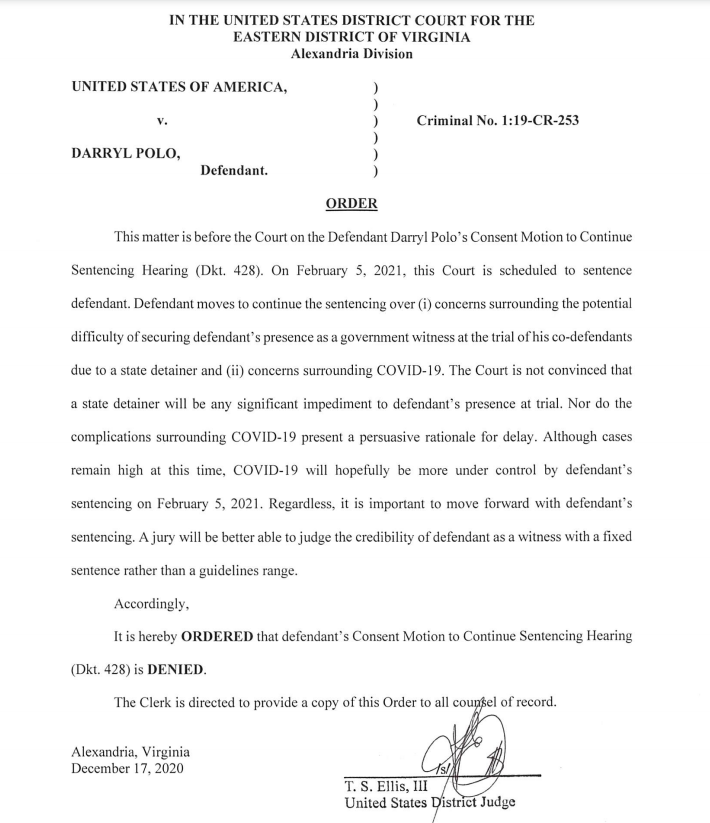
Getty The COVID-19 stimulus bill includes a measure to make illegal streaming a felony.
The new COVID-19 relief bill includes a provision that would make online piracy a felony crime punishable by up to 10 years in prison. But it’s important to look past the headlines on this issue. Individual internet users would not be impacted by this bill, which as of this writing had not yet been signed into law.
The measure, which was co-sponsored by Senators Thom Tillis (R-NC) and Patrick Leahy (D-VT), instead specifically targets larger entities that make money from illegally streaming copyrighted materials.
Tillis addressed any confusion about who the legislation targets in a Twitter post. He wrote on December 21, “Bipartisan legislation I led with @SenatorLeahy to fight illegal streaming by criminal organizations will be signed into law this week. It will end commercial piracy by criminal organizations and will not apply to internet users.”
Here’s what you need to know:
The New Law Will Target Illegal Streaming Operations Like iStreamItAll & Jetflicks, Which Were Shut Down in 2019
If you have ever downloaded a pirated version of a television episode, you don’t have anything to worry about with the new law. The Protecting Lawful Streaming Act was written to go after large-scale operations like iStreamItAll & Jetflicks.
According to the Justice Department, the iStreamItAll streaming service had more content than Netflix, Hulu, Vudu and Amazon Prime. The service charged subscribers for access to shows and movies, just like legitimate companies.
The difference was that all of the content on iStreamItAll had been obtained illegally. The computer engineer who launched it, Darryl Julius Polo, pleaded guilty in December 2019 to federal charges including conspiracy to commit criminal copyright infringement, copyright infringement by reproduction and money laundering.
Polo admitted to investigators that he “reproduced tens of thousands of copyrighted television episodes and movies without authorization, and streamed and distributed the infringing programs to thousands of paid subscribers located throughout the U.S.”
Prosecutors said the service had more than 118,000 television episodes and approximately 11,000 movies. Polo said he earned more than $1 million with his streaming service. According to the Washington Post, Polo started iStreamItAll in 2014 and charged subscribers $19.99 per month for commercial-free content.

Eastern District of VirginiaDarryl Polo admitted to operating an illegal streaming operation called iStreamItAll.
Polo and a co-defendant, Luis Angel Villarino, also confessed to working on a second subscription-based streaming service called Jetflicks. The Post reported that Jetflicks garnered about $750,000 in profits in a single year.
According to federal court documents, Polo’s sentencing was pushed back multiple times. He is currently scheduled to face sentencing on February 5, 2021, after U.S. District Judge T.S. Ellis III denied a request for another continuance. Villarino is also still awaiting sentencing.
Digital Piracy Costs the U.S. Economy an Estimated $30 Billion Per Year, According to Lawmakers

Getty
The Protecting Lawful Streaming Act is meant to protect content creators that miss out on profits when their property is pirated. In the news release about the anti-piracy measure, Tillis said illegal streaming costs the U.S. economy as much as $30 billion per year.
“I am proud this commonsense legislation that was drafted with the input of creators, user groups, and technology companies will become law so we can target criminal organizations and ensure that no individual streamer has to worry about the fear of prosecution,” Tillis said.
Co-sponsor Leahy added, “At a time when an unprecedented number of Americans are streaming movies and TV shows, music and books, criminal organizations are exploiting a loophole in copyright law to steal online content at an unprecedented rate and with hardly a consequence. Commercial piracy costs the economy billions of dollars and hurts both the creative community and consumers. This narrow bill closes this loophole by targeting only commercial, for-profit criminal piracy, and I am proud to have supported it.”
Before this measure, illegally streaming copyrighted material resulted in a misdemeanor charge. The Protecting Lawful Streaming Act explains that it is illegal for a streaming service to offer media content without permission from the person or entity that created it. Here is the exact language from the bill:
(b) PROHIBITED ACT.—It shall be unlawful to willfully, and for purposes of commercial advantage or private financial gain, offer or provide to the public a digital transmission service that—
(1) is primarily designed or provided for the purpose of publicly performing works protected under title 17 by means of a digital transmission without the authority of the copyright owner or the law;
(2) has no commercially significant purpose or use other than to publicly perform works protected under title 17 by means of a digital transmission without the authority of the copyright owner or the law; or
(3) is intentionally marketed by or at the di16 rection of that person to promote its use in publicly performing works protected under title 17 by means of a digital transmission without the authority of the copyright owner or the law.
READ NEXT: Men Attacked Strip Club With AK-47 After Refusing to Wear Masks: Cops